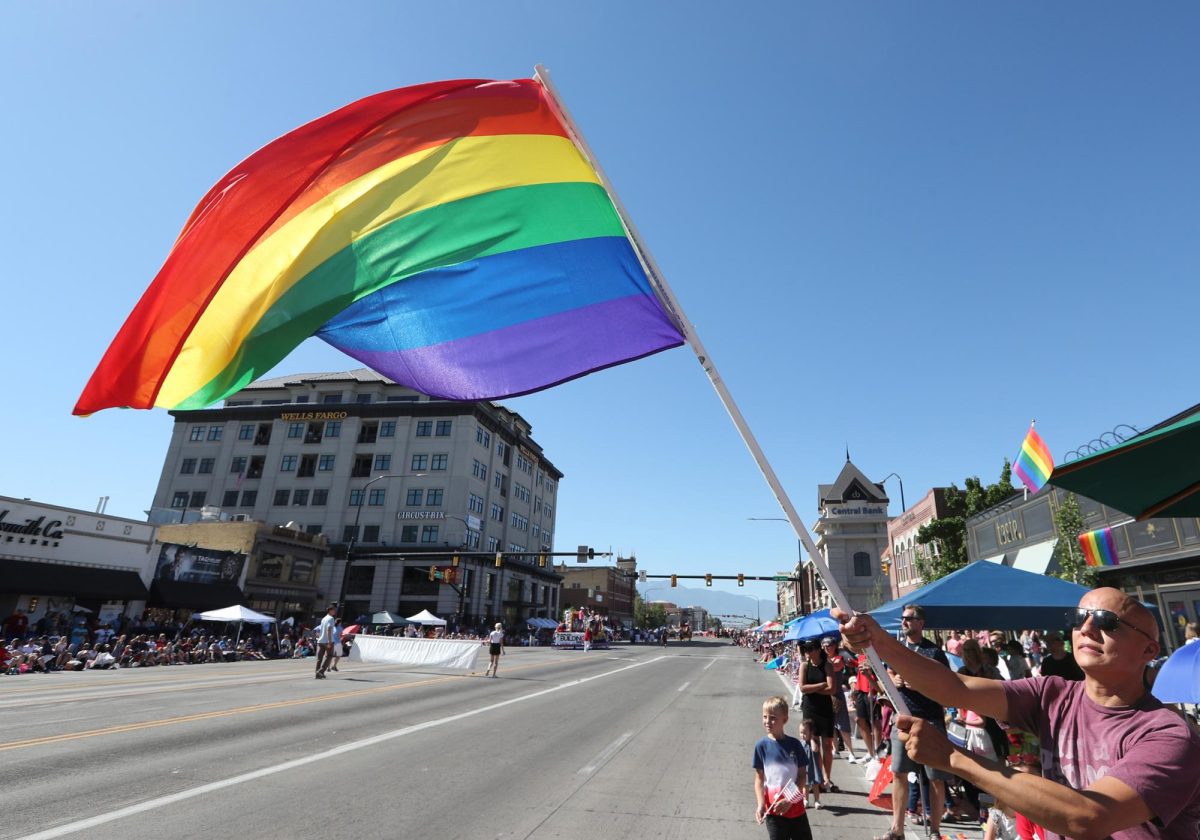
Queer and proud were the words Ella Mendoza, an undocumented queer young woman, used to introduce herself to Weber State University students and faculty at the discussion panel titled “En mis manos: my pride, my heritage.”
The Center for Diversity and Unity held a panel discussion on Wednesday to present the misconceptions associated with the LGBT-Latino community, as well as the important roles race and culture play when coming out.
The panel was composed of six individuals who identified themselves as queer and Latino, who, for the most part, share the same fear—not being accepted by their families and, in many cases, being kicked out of their homes.
Panelist Abby Steven Arellanes, an androgynous queer Mexican immigrant, who also grew up as a Jehovah’s Witness, shared how his father became aware of Arellanes’ sexual orientation.
Arellanes had told his mother about his sexual orientation, but his mother’s advice was not to tell his father until he was ready to move out the house because his mother knew that Arellanes’ father would kick him out of the house.
“One day, I was just sitting in my room, and I was going through (LGBT) articles,” Arellanes said. “I left my room for a bit, and my dad came into my room. He saw my laptop, he saw a lot of the articles that I had that were LGBT key issues.”
Arellanes’ father was really upset and Arellanes spent the night at a friend’s house. When he came back the next day, his room was destroyed.
“He had broken everything, from my laptop to my lamps and everything I had in there,” Arellanes said. “I grabbed what was left of my clothes, and I was sent away. I was homeless for a time because I didn’t want to go back home, and I didn’t have means on my own.”
On the other hand, there is the story of panelist Enrique Romo, executive director for access and diversity at Weber State University in Ogden. Romo’s parents were very welcoming when he came out, and to his surprise, his parents told him to make sure he introduced his boyfriend to them.

Panelists also addressed the way race influenced their coming out and the homophobic Latino stereotype. They also addressed the term “machismo,” which refers to strong masculine pride and how this ideology made it more difficult for them to be accepted.
“In Hispanic culture, I think ‘machismo’ has a big deal to play with sexuality and the expectations that people have about men,” said Arellanes.
Alicia Giralt, director of the women and gender studies program at WSU, said the homophobia associated with Latinos is wrong because many Latin-American countries legalized gay marriage years before the U.S. did.
“When we talk about coming out, I feel it is important for us to realize and recognize that coming out is an everyday experience,” said Mendoza. “Coming out is a new haircut, coming out is the change of lipstick, coming out is an everyday beautiful experience that comes gradually.”



















